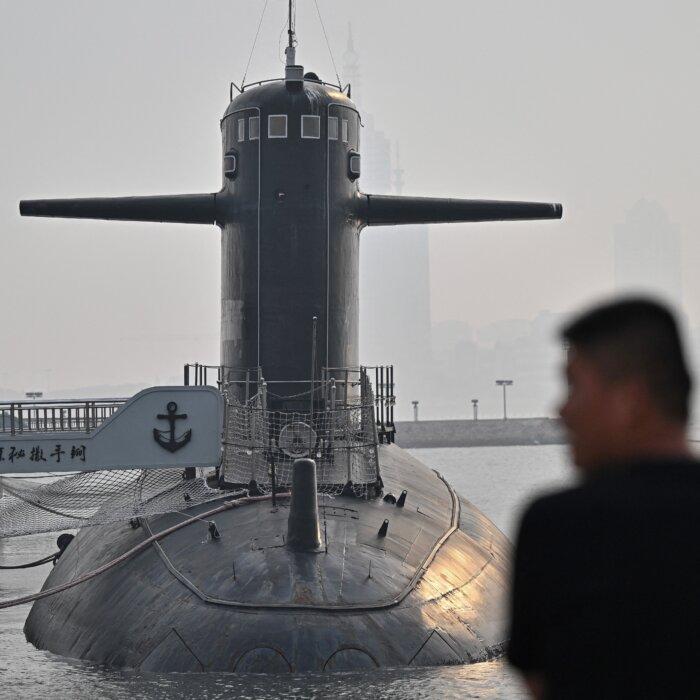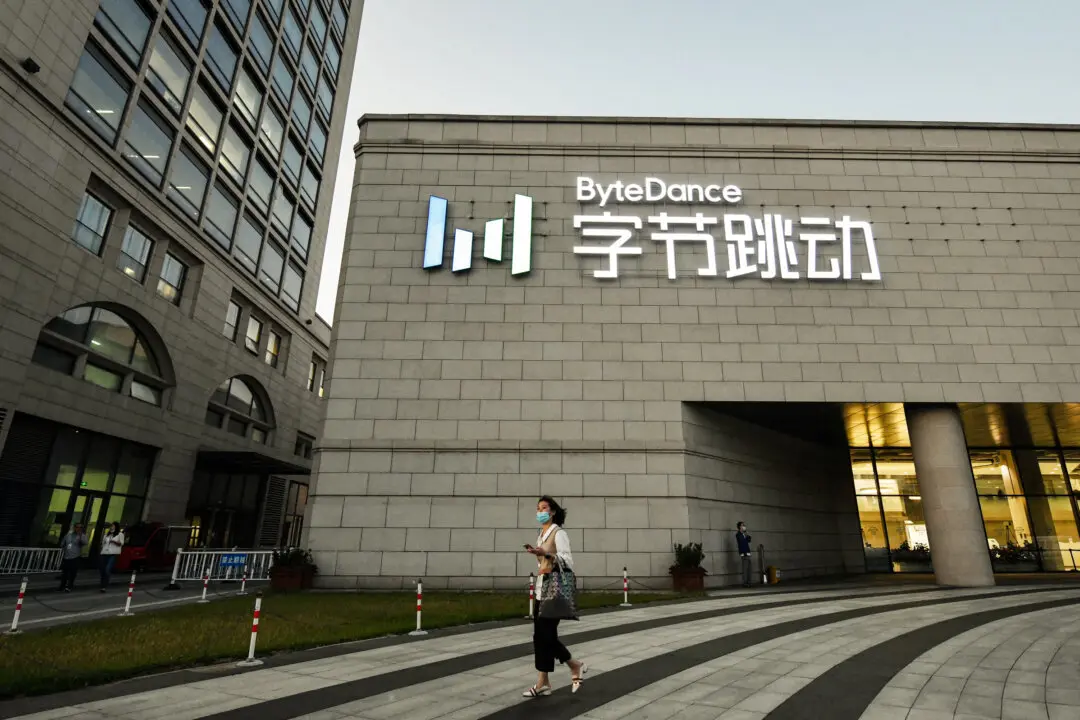Taiwan has denounced the Chinese communist regime for using this year’s anniversary of the end of World War II in Asia push its false claim that it was the Chinese Communist Party (CCP) that led the fighting against Japan’s invasion during the war, rather than the Republic of China government, which at the time ruled China.
Aug. 15 was the 80th anniversary of Victory over Japan Day, the day Japan announced its surrender in 1945.
Taiwan, which uses the official name the Republic of China (ROC) as shown on its citizens’ passports, is the last territory of the republic that also ruled mainland China from 1911 to 1949.
After being defeated by the CCP in 1949 on the mainland, the ROC’s nationalist government, led by Chiang Kai-shek, retreated to the island of Taiwan, which was returned to China from Japanese occupation in 1945. The Republic of China has remained Taiwan’s official name since then. Meanwhile, the CCP established the communist regime, the People’s Republic of China (PRC), on the mainland in 1949.
The CCP claims sovereignty over Taiwan despite that it has never ruled the island, and it has not ruled out the possibility of using force to annex Taiwan.
As the communist regime holds commemoration events, including a military parade in Beijing on Sept. 3 to celebrate the “CCP-led victory against Japanese invasion,” Taipei’s top China-policy maker warned the people of Taiwan to be vigilant against the CCP’s distortion of history and threats against the island nation.
Taiwan’s Mainland Affairs Council Minister, Chiu Chui-cheng, pointed out in a video released by his office on Aug. 15 that the PRC did not exist during World War II.
“The Chinese Communist regime has repeatedly distorted the facts in recent years, claiming that the war against Japan was led by the Communist Party, and has even fabricated the notion that Taiwan belongs to the People’s Republic of China,” Chiu said.
He called on Taiwanese people to “unite and jointly defend national sovereignty and dignity” to participate in Taiwan-led events instead of taking part in the PRC’s war commemorations, such as the parade.
ROC Led the War, Not CCP
The ROC was part of the Allied Forces alongside the United States during World War II, and its nationalist troops played a crucial role against Japan, not the communist troops.Epoch Times columnist Li Jian examined the major battles against Japan during World War II in his article for the Chinese language edition on Aug. 14. He pointed out that “during the eight-year war, there were 22 large-scale battles between China and Japan, each of them involving more than 100,000 troops.”
“The CCP army only participated in two battles, the Pingxingguan Battle and the Hundred Regiments Offensive,” he wrote.
The rest were all fought by the nationalist troops alone.
“The ROC’s nationalist army led by Chiang Kai-shek was the main force in the decisive battles and the core of the war of resistance,” he wrote.
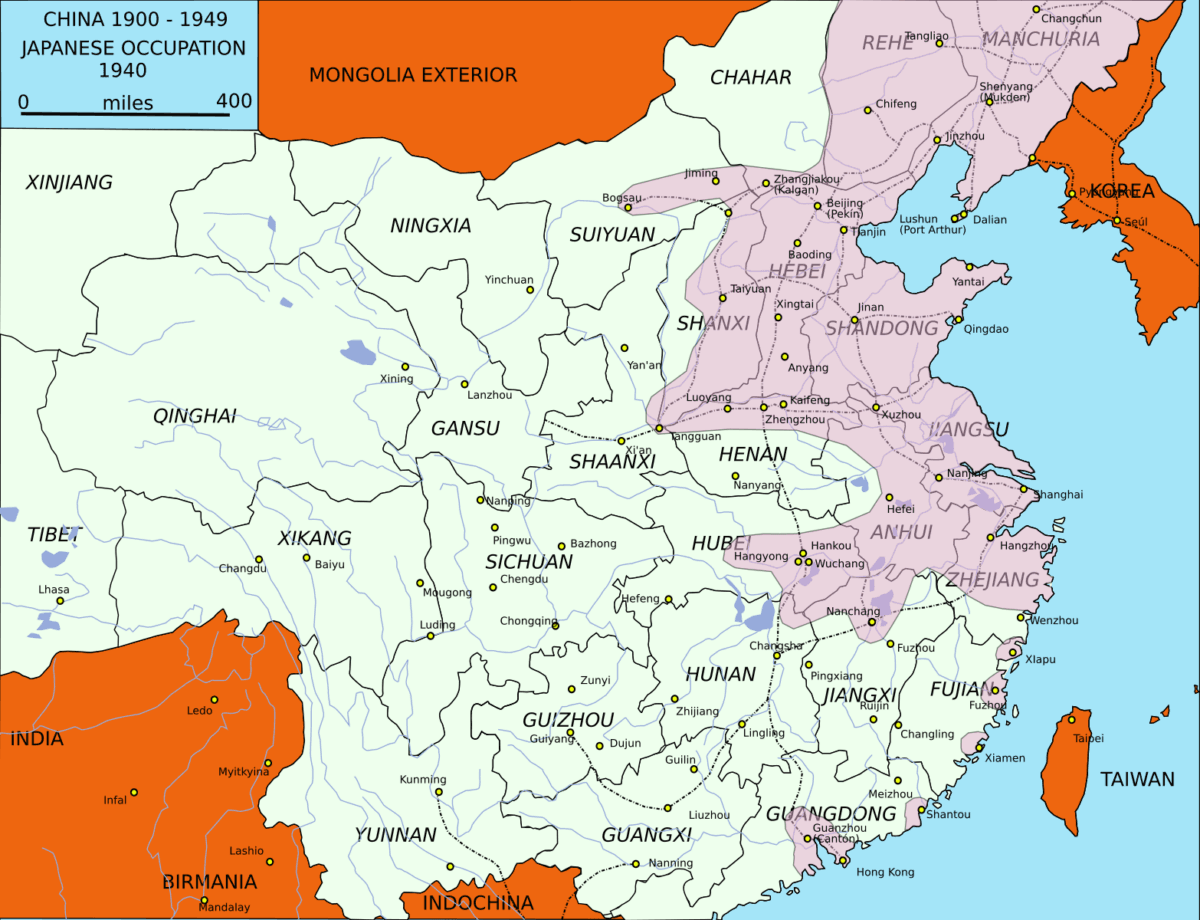
After the CCP’s Long March (1934–1935), which was in fact its long escape from the ROC government’s pursuit from its base in the southeast inland province of Jiangxi to northwest China, the CCP built a new base in Yan’an in Shanbei, Shaanxi Province. The new location was away from the northeast, eastern, and southern China that were occupied by Japan and where the main battles took place during World War II in China and Asia (1937–1945).
While nationalist troops fought the Japanese invasion, the CCP largely remained in Yan'an in northern China.
In “The Generalissimo: Chiang Kai-shek and the Struggle for Modern China” (2008), U.S. historian Jay Taylor detailed the allied efforts between the nationalist troops led by Chiang and the U.S. troops during World War II in China, including the famous U.S. pilot group the Flying Tigers.
In “Forgotten Ally: China’s War with Japan, 1937–1945” (2013), British historian Rana Mitter sheds light on the major battles that China fought against Japan, mostly by the nationalist troops, during World War II. It also highlights the Chinese nationalist troops’ crucial role in fighting against Japanese troops in the jungle of Burma, alongside British and American troops, preventing Japan from moving westward in Southeast Asia and into South Asia.

When the CCP arrived in Yan'an after the Long March, it had only 6,000 troops. In 1945, when the Japanese surrendered, the CCP’s army had grown to more than 900,000 regular soldiers, in addition to 2 million militia fighters, according to the “Nine Commentaries on the Communist Party,” published by The Epoch Times.
“During the war, the CCP made a show of calling for resistance to the Japanese, but they only had local armies and guerrilla forces in camps away from the frontlines,” the “Nine Commentaries” states. “By marching through these northern provinces, it could claim to be ‘fighting the Japanese’ and win people’s hearts.”
In 1945, when the war with the Japanese came to an end, the civil war began to break out.
Chiang had 39 American-trained divisions, he had equipment, and he had “high morale among his troops,” according to Sen. Joe McCarthy in “America’s Retreat From Liberty.” However, George Marshall was posted to China from 1945 to 1947 as the U.S. special envoy to China and enforced a policy that disarmed the nationalist army and forced the ROC into a unified government with the communists, McCarthy said.
“Marshall described one of his own acts as follows: ‘As Chief-of-Staff I armed 39 anti-Communist divisions. Now with a stroke of a pen I disarm them,’” he said of Marshall’s actions after the war.
McCarthy said that although Marshall cut off the flow of arms to Chiang, he allowed support from the communists in Russia to the communists in Yan'an to flow unabated.
In contrast to the nationalists’ resistance against Japan, CCP leader Mao Zedong expressed gratitude to Japan’s invasion on several occasions, which were recorded in official documents of the CCP and have been widely cited by international historians and media.
For example, in 1972, Mao met with Japanese Prime Minister Tanaka Kakuei in Nanjing and told him there was no need to apologize for the atrocities Japan committed in China during the war.
“[If] Imperial Japan did not start the war of invasion, how could we communists have become mighty powerful?“ Mao said at the time. ”How could we stage the coup d’état? How could we defeat Chiang Kai Shek? How are we going to pay back you guys? No, we do not want your war reparations!”
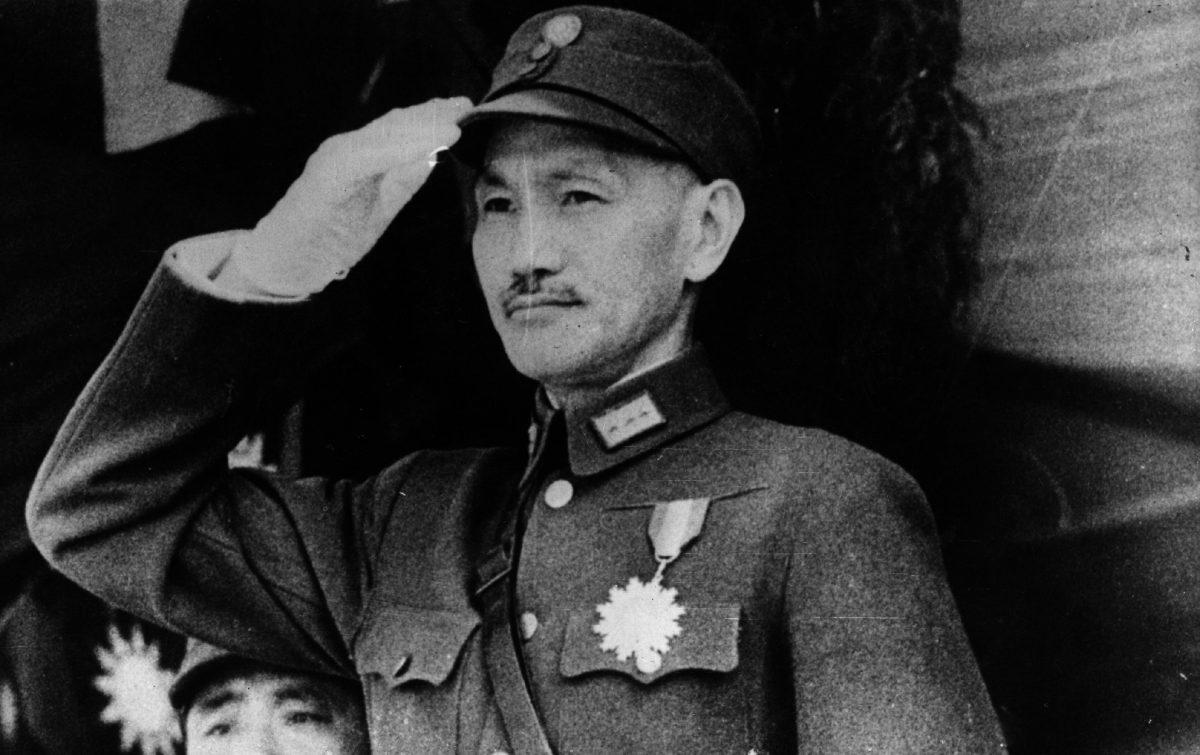
Renowned Chinese historian Xin Haonian said in a speech at a forum in Texas about China’s war of resistance against Japanese invasion that “the CCP did not fight against the Japanese, falsely claimed it fought against the Japanese, and even collaborated with the enemy and sold out the country.”
However, for decades, “it has not only continued to slander the other party [the nationalists] that consistently fought against the Japanese and led the war of resistance as a party that did not fight against the Japanese, but also continued to portray itself as ‘the hero who led the entire nation to fight against the Japanese and achieve final victory.’”
CCP Has Never Ruled Taiwan
After World War II, Taiwan, occupied by Japan from 1895 to 1945, was returned to the ROC, according to the Cairo Declaration (1943) and the Potsdam Declaration (1945), of which Chiang Kai-shek was one of the signing parties along with the leaders of the UK and the United States. The ROC formally accepted the handover on Oct. 25, 1945.When the nationalist troops were defeated by the communists in mainland China in China’s civil war in 1949, the ROC government retreated to Taiwan, while the CCP established its communist regime on the mainland.
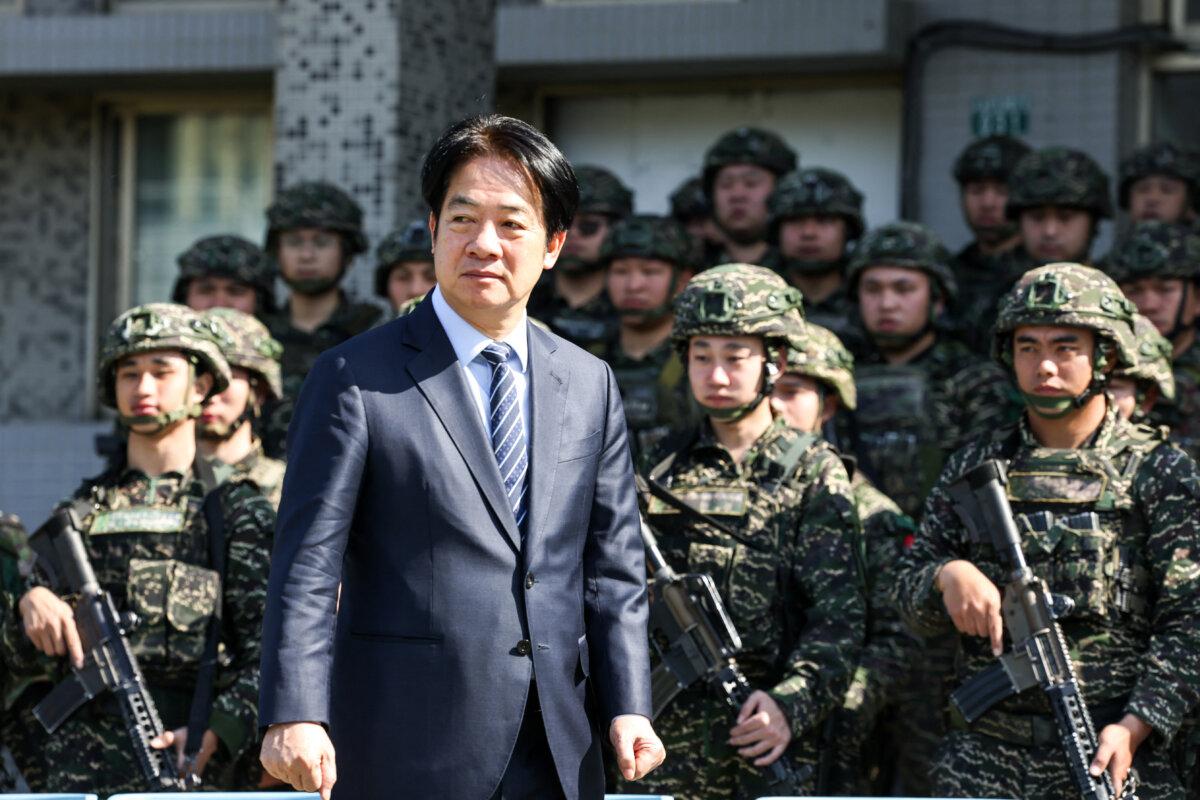
Lai, Taiwan’s president, stated in his presidential inaugural address in 2024 that “the Republic of China and the People’s Republic of China are not subordinate to each other.”
The CCP responded to Lai’s rejection of Beijing’s sovereignty claim by calling him a “separatist.”
Lai emphasized earlier this year in his series of public speeches in Taiwan that the PRC has never exercised sovereignty over Taiwan or other outlying islands administered by the ROC.
“Regardless of what name we choose to call our nation—the Republic of China, the Republic of China Taiwan, or Taiwan, we are an independent country,” he said.


